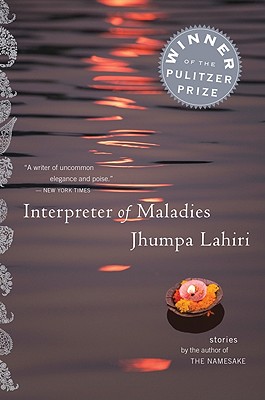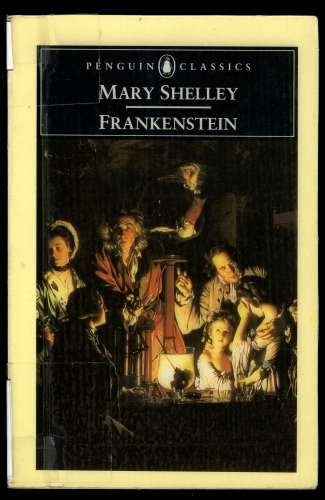
Has got to be one of the top five best novels I’ve ever read so far. The world that Ayn Rand built in her astounding story has its own heart and mind. It’s a new world that I can see myself being part of, a reflection of what we actually have today only with more awakened souls and a far richer environment that could possibly exist out there yet just too short to be witnessed by the normal people.
To be honest, I’ve heard Ayn Rand’s name being passed around in literary and philosophical circles and the impression that I got was actually a sign of pretentiousness and a lack of originality. Kind of like
Robert Pirsig’s Zen and the Art of Motorcycle Maintenance. I think the first time I’ve read of her was when I went to Punta Fuego with my party friends and “Marco”, if I’m not mistaken, introduced me quickly to her with
Anthem.
It took me about a month to finish the novel, and I actually got more into it around 30-40 pages through the book since it was a bit too slow for a first time Ayn Rand reader and I learned that when you read her works, you must simply allow yourself to enter the world she’s created. Don’t try expecting too much events and conflicts; they will come at the right time. Ayn Rand, for me, now belongs to my favourite writers list. The way
Dosteovesky’s The Brothers Karamazov had made an impact to me, is the same as this book, maybe even better—but such comparisons can never meet, for I read them both at different stages of my life; and I was a different me back then. And that’s how the great novels demarcate themselves from the good ones. The content belongs in the real world, as if you have or are experiencing what’s happening inside the book with its characters. The philosophical topics discussed in the book are also important matters that we all must be aware of.
COMMENTS
Plot: The plot revolves around the powerful people who own large companies which revolutionize the pure characteristic of capitalism. I like how the plot itself plants seeds of more interesting and thought provoking topics such as the ethics of money, selfish interests, pleasure, sacrifice, and more subtopics that deserve a whole lot of credit. It is highly intelligent and well crafted that it’s hard to find something wrong or odd about it, truly sometimes even fact can be stranger than fiction.
The equalization opportunity bill is good for the economy to avoid monopoly. If Rearden Metal rises, like what happened, other competing large companies would lose their clients, hence go bankrupt. In that case, thousands of labourers would lose their jobs. Where would they go? The government can’t provide funding for the losing corporations because they won’t have clients anyway, even if they reduce the costs of their products and services.
Atlantis Valley seems like an odd parallelism of
Plato’s Ideal state. Instead of working by their specialization, they’d rather do labor work that pays the simple life as a reward; normal labor work that brings forth necessity instead of pleasurable progress.
The plot gently is something to actually experience. Since the book is very long, all throughout you are introduced to numerous people and actually “know” them maybe even more than how you know most people.
Characters: I may have liked four main characters in this film and they all deserved it, some much more. Each of them showed a unique philosophy in life and other things with the way they could apply it in their daily lives. That is a very special conditions that Rand’s plot gave in her favour. They were all heroes of the modern age if you think about it.
During the “Climax of the D’Anconias” chapter, the story telling of Dagny and Francisco’s early personality and resembling characteristics were utterly interesting. The personalities they nurture were nearly placed on a microscope to be examined. They are both unique and lovable characters in their own way; both were honest convincing and powerful.
Imagery: The way Ayn Rand writes is just so beautiful. With the technique of drawing you deeper into the consciousness of the characters as if you can feel yourself being them, then making you imagine their perspective not only in the physical resemblances of things but also on how to feel about them. The metaphors that she used were also technically related to the plot; metaphors of machinery, engineering, or business or animalism. She’s a magician of the figure.
The ones that really gave it her all was this:
...then she felt, when it hit her throat, that which she knew only as an upward streak of motion that released and united her body into a single shock of pleasure—then she knew nothing but the motion of his body and the driving greed that went reaching on and on, as if she were not a person any longer, only a sensation of endless reaching for the impossible—then she knew that it was possible, and she gasped and lay still, knowing that nothing more could be desired, ever.
- Atlas Shrugged, 876. Ayn Rand.
Reflections: The way she lets you know the character is slowly by joining your hands together with them and, without realizing, being inside their own mind. In this case, reflections are used as a tool to provide the reader of such feeling/s. They are also possible discussions a reader should contemplate or discuss about with another friend and in that case the fiction becomes a newscast. A philosophy awakening project.
The moral good revolves around the individual doing what he or she pleases legally, and being very successful at it. One would say that Rearden’s interest benefits the people without his intention, though that could be the legal part of it. When the equalization bill is disobeyed, this legality is turned upside down since Rearden’s continuous success over his interest brings forth conflict to others, to the society. So he must still belong within the realms of the law.
Writings Style: Her writing style is by far the best I’ve encountered so far in literature. Although some few consistent elements could have been favoured to be worked by a different author, her own style is as unique as it is. I mentioned it earlier that she connects her metaphors with the plot’s content and it’s very amusing to witness it. Also her way of really attaching you with the characters and meeting their decisions as your own, it’s something to be proud of.
I really admire Ayn Rand’s way of shifting from one scene to another without confusing or irritating the reader. Her narration is also something to be astonished about, so charming, direct, mysterious, polite, smart and sexy.
During the “Non Commercial” chapter, the anniversary party showed Rand’s skills in compiling different discussions with different groups of people in one narration.
Quotables:
“A sin without volition is a slap at morality and an insolent contradiction in terms: that which is outside the possibility of choice is outside the province of morality. If man is evil by birth, he has no will, no power to change it; if he has no will, he can be neither good nor evil; a robot it amoral. To hold, as man’s sin, a fact not open to his choice is a mockery of morality. To hold man’s nature as his sin is a mockery of nature. To punish him for a crime he committed before he was born is a mockery of justice. TO hold him guilty in a matter where no innocence exists is a mockery of reason. To destroy morality, nature, justice and reason by means of a single concept is a feat of evil hardly to be matched. Yet that is the root of your code.
- Atlas Shrugged, 938. Ayn Rand.
----
“The good, say the mystics of spirit, is God, a being whose only definition is that he is beyond man’s power to conceive—a definition that invalidates man’s consciousness and nullifies his concepts of existence. The good, say the mystics of muscle, is Society—a thing which they define as an organism that possesses no physical form, a superbeing embodied in no one in particular and everyone in general except yourself. Man’s mind, say the mystics of spirit, must be subordinated to the will of Society. Man’s standard of value, say the mystics of spirit, is the pleasure of God, whose standards are beyond man’s power of comprehension and must be accepted on faith. Man’s standard of value, say the mystics of muscle, is the pleasure of Society, whose standards are beyond man’s right of judgment and must be obeyed as a primary absolute. The purpose of man’s life, say both, is to become an abject zombie who serves a purpose he does not know, for reasons he is not to question. His reward, say the mystics of spirit, will be given to him beyond the grave. His reward, say the mystics of muscle, will be given on earth—to his great-grandchildren.
- Atlas Shrugged, 940. Ayn Rand.
----
Rand, Ayn. 1957.
Atlas Shrugged. USA: Signet.
 If my memory serves me right, I believe I discovered this novel from a literary blogsite that I found really interesting and creative. The author reviewed the book really well and it got me intrigued, so were the multiple reviews that I read as well in goodreads.com and amazon.com. I saw the copy at fullybooked and got even more excited when I realized it won a Pulitzer Prize. When I got home, I planned on making an organize list of books that I need to read in the next few months, so after reading the synopsis of the novel I really found it compelling. Needless to say, I expected very much from the novel. Sadly, it became a very huge disappointment for me, so disappointing that I actually want to either sell the book or just give it away as a gift to a friend. I keep regretting how I could have actually bought a different book in replace for this one. Don’t get me wrong, Jhumpa Lahiri’s Interpreter of Dreams is still worth a read, only it doesn’t really deserve the high praise that it has been receiving.
If my memory serves me right, I believe I discovered this novel from a literary blogsite that I found really interesting and creative. The author reviewed the book really well and it got me intrigued, so were the multiple reviews that I read as well in goodreads.com and amazon.com. I saw the copy at fullybooked and got even more excited when I realized it won a Pulitzer Prize. When I got home, I planned on making an organize list of books that I need to read in the next few months, so after reading the synopsis of the novel I really found it compelling. Needless to say, I expected very much from the novel. Sadly, it became a very huge disappointment for me, so disappointing that I actually want to either sell the book or just give it away as a gift to a friend. I keep regretting how I could have actually bought a different book in replace for this one. Don’t get me wrong, Jhumpa Lahiri’s Interpreter of Dreams is still worth a read, only it doesn’t really deserve the high praise that it has been receiving.






